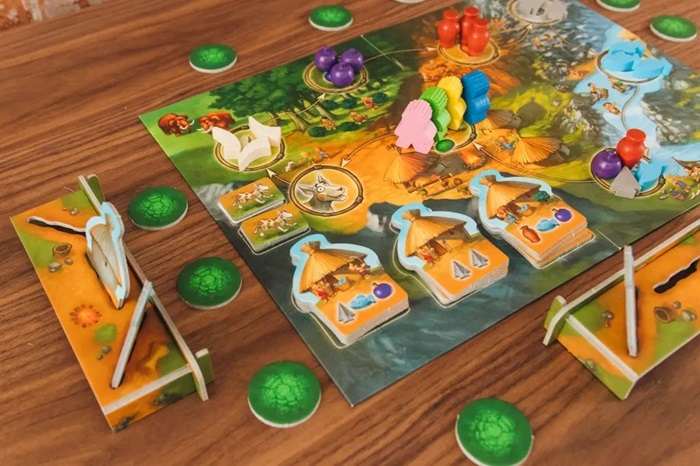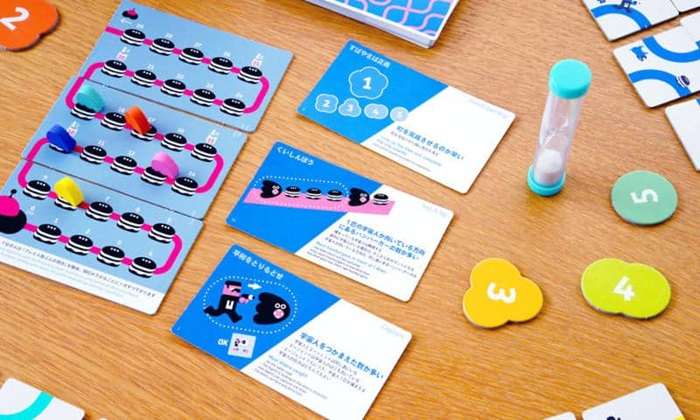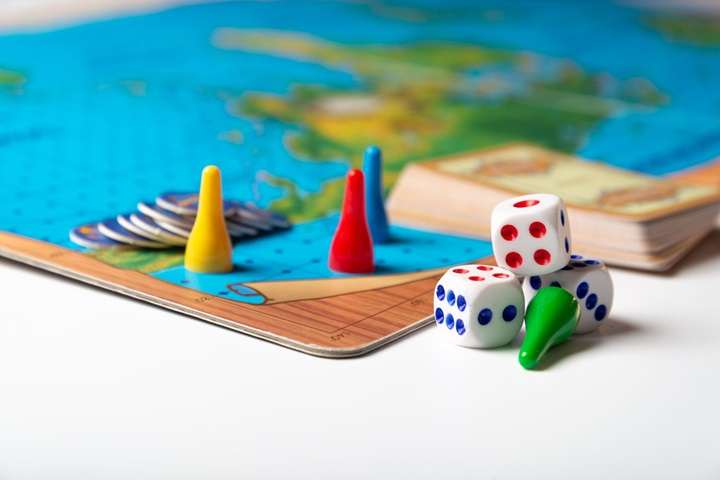Board games are more than just a pastime—they’re a powerful tool for education, socialization, and family bonding. In an age where screens often dominate children’s entertainment, traditional board games offer a refreshing change. This guide delves into the world of board games for kids, exploring the benefits, popular choices, and tips for choosing the perfect game.
The Magic of Board Games: Why They Matter
Developing Cognitive Skills
Board games provide a fun and interactive way for kids to develop critical cognitive skills. From memory and attention to problem-solving and strategic thinking, board games challenge children to use their brains in diverse ways. Games that involve counting, pattern recognition, and logical reasoning lay a strong foundation for future academic success.
Enhancing Social Skills
One of the greatest benefits of board games is their ability to foster social skills. Playing games with family and friends teaches kids about cooperation, turn-taking, and sportsmanship. They learn how to handle wins and losses gracefully, negotiate with peers, and communicate effectively—all essential skills for navigating social situations.
Encouraging Family Bonding
Board games are a fantastic way to bring families together. Unlike many activities that are done individually, playing a board game requires interaction and collaboration. It’s a chance for parents and children to connect, share laughs, and create lasting memories.
Top Board Games for Different Age Groups

For Toddlers (Ages 2-4)
At this stage, board games need to be simple, safe, and engaging. Here are some top picks:
1. Candy Land
Candy Land is a classic game that introduces toddlers to the concept of board games. With its colorful board and simple gameplay, it helps young children learn about colors, counting, and following directions.
2. First Orchard
This cooperative game involves working together to collect fruit before the raven reaches the orchard. It’s designed to teach toddlers basic counting and teamwork in a fun, interactive way.
3. Matching Games
Matching games, such as “Memory” or “Animal Matching,” are perfect for toddlers. They help improve memory and concentration skills while providing a fun and engaging activity.
For Preschoolers (Ages 4-6)
Preschoolers are ready for games that require a bit more strategy and imagination. Here are some engaging options:
1. Go Fish
Go Fish is a simple card game that helps children with number recognition and matching. It’s also great for teaching them how to take turns and handle losing gracefully.
2. Hungry Hungry Hippos
In this fast-paced game, kids use plastic hippos to “gobble” up marbles. It’s a great way to develop hand-eye coordination and quick thinking.
3. Zingo
Zingo is a bingo-style game that encourages matching skills and vocabulary development. It’s perfect for building language skills while keeping kids entertained.
For Early Elementary (Ages 6-8)
Children in this age group are ready for more complex games that challenge their strategic thinking and problem-solving abilities:
1. Guess Who?
In Guess Who?, players ask yes-or-no questions to figure out which character their opponent has chosen. It’s an excellent game for developing deductive reasoning and critical thinking skills.
2. Chutes and Ladders
This classic game involves climbing ladders and sliding down chutes based on dice rolls. It’s great for teaching counting, number recognition, and the concept of luck versus strategy.
3. Jenga
Jenga requires players to carefully remove blocks from a stack without toppling it. It’s a fantastic game for improving fine motor skills and hand-eye coordination.
For Older Kids (Ages 9-12)
Older kids can handle games with more complex rules and strategies. Here are some top recommendations:
1. Catan
Catan is a strategy game where players collect resources and build settlements. It’s perfect for teaching kids about resource management, negotiation, and strategic planning.
2. Ticket to Ride
In Ticket to Ride, players collect train cards and build routes across the map. This game helps with planning, spatial reasoning, and strategic thinking.
3. Pandemic
Pandemic is a cooperative game where players work together to stop global outbreaks. It encourages teamwork, problem-solving, and critical thinking as players devise strategies to combat the spread of diseases.
Tips for Choosing the Right Board Game
Consider Age Appropriateness
Always choose games that are suitable for your child’s age and developmental stage. Games that are too complex can be frustrating, while games that are too simple may not hold their interest.
Focus on Interests
Select games that align with your child’s interests. If they love animals, look for games that feature animal themes. If they enjoy puzzles, consider games that involve problem-solving.
Look for Educational Value
Many board games are designed to be both fun and educational. Look for games that offer opportunities for learning, whether it’s through math, language, or social skills.
Check for Replayability
A game that can be played multiple times without becoming monotonous is ideal. Games with different strategies or varying outcomes keep kids engaged and excited.
Ensure Quality and Safety
Choose games from reputable manufacturers that prioritize safety and quality. Avoid games with small parts for younger children, and check for any choking hazards.
Making the Most of Board Game Time

Set Up a Regular Game Night
Establishing a regular game night can turn board games into a cherished family tradition. It’s a time for everyone to disconnect from screens and connect with each other.
Encourage Friendly Competition
Teach kids to enjoy the process of playing, not just winning. Emphasize the fun of the game and the value of playing well with others.
Mix It Up
Keep game time exciting by mixing up the games you play. Rotate between old favorites and new discoveries to maintain interest and engagement.
Get Involved
Show enthusiasm and participate actively. Your involvement sets a positive example and makes the experience more enjoyable for everyone.
Related Post:
Big Brother Reindeer Games: A Winter Wonderland of Competition
2 Player Games Unblocked: The Ultimate Guide to Fun and Friendly Competition
OVO Cool Math Games: A Complete Guide to Mastering the Game
Board games for kids are more than just a fun activity—they’re a valuable tool for development, learning, and family bonding. From toddlers to tweens, there’s a board game out there that fits every age and interest. By choosing the right games and making the most of game time, you can provide your children with a wealth of benefits while creating joyful memories together. So gather around the table, roll the dice, and let the fun begin!


